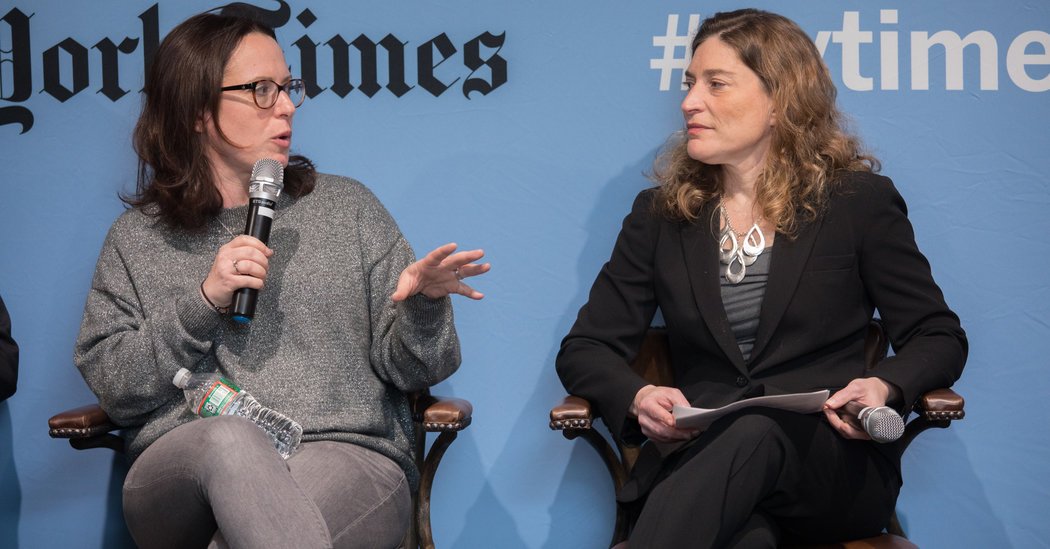
I first crossed paths with Maggie Haberman, a White House correspondent for The Times, in 2001, when we were both covering City Hall — she for The New York Post and me for The Times. She was exactly the same as she is now — sardonic, witty, neurotic, mildly paranoid, indifferent to the content of her next meal (which may or may not have been a PowerBar and a piece of midpriced chocolate), showtune-belting and always kicking the competition’s collective butt with a scrappy tabloid instinct that fueled New York’s best municipal journalism at that time.
Some things have changed, of course — age, children, crazy success, the fragmentary attention span of the president of the United States, endless demands on her time, attention, Rolodex. But as she noted when we reminisced recently, all too many others have remained the same.
JENNIFER STEINHAUER: When we first met, 9/11 had just happened, the lame duck mayoralty of Rudy Giuliani was in a latent ascent and a who-the-heck-is-that-guy Mike Bloomberg was on his unlikely path to take the reins at City Hall. What do you reflect on most often from that time in your career?
MAGGIE HABERMAN: There were a lot of points during the 2016 race and right after Trump won that I found myself thinking how similar his election was to Bloomberg’s, in retrospect. Not in the specifics. But to the extent that the WikiLeaks email spread of [John] Podesta’s material was an unprecedented form of terror in an election, and one that led to an event that seemed unlikely (Trump’s election), it was not dissimilar.
How has your interviewing style changed over time? What has most informed those changes?
I have listened to tapes of myself interviewing people and mostly I try to be better at directing the conversation. Trump in particular is really hard because he filibusters. I’ve learned over time when to jump in and when to let the person just go.
Who are the people you have found hardest to interview over your career?
Hillary Clinton is the hardest. People who are closed-off are very hard to interview.
President Trump has often put you, and The Times, in the spotlight. How has that affected the way you think about your job?
It is a reminder of something Jack Newfield said to me when we were doing a “Ten Worst Judges” series 20 (yikes!) years ago, which is that you can’t give in to intimidation. Trump is just louder, but it’s the same thing. That said, it has amplified the fact that we need to be extra careful about not making mistakes, and about showing people our methods to the extent we can, because things get ripped from context.
What is going to be the most important line of reporting in 2018 in your view?
The culmination of the Mueller probe in some form of a report, and potentially the trial of Paul Manafort. The other obvious one is whether the House flips, which seems less of a certainty than it did a few months ago because of tax reform.
What is the best advice you have gotten from a fellow journalist over the years?
My editor Gregg Birnbaum at The New York Post was once cautioning me that I was overthinking a complaint from a subject on a story. “Their problems are not our problems” was what he said. I think about that a lot.
Keep up with Times Insider stories on Twitter, via the Reader Center: @ReaderCenter.

Be the first to comment